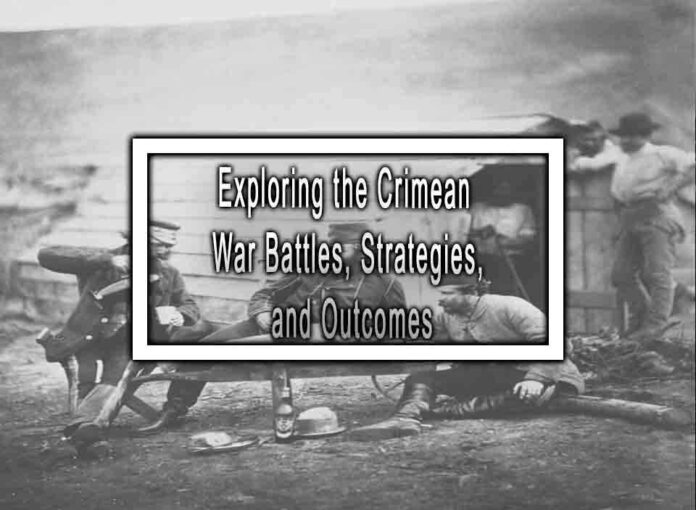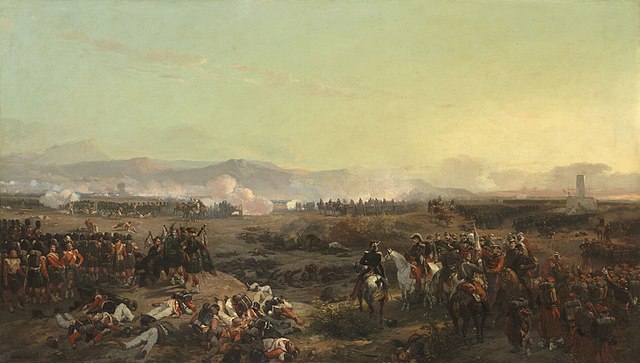The Crimean War (1853-1856) was a major conflict involving an alliance of several European powers, including Britain, France, and the Ottoman Empire, against Russia. The war primarily centered on the Crimean Peninsula in the Black Sea region and had several notable battles, strategies, and outcomes:
Key Battles:
- Battle of Alma (1854): The first major battle of the war, it was fought along the Alma River. Allied forces, including British and French troops, defeated the Russian army. This victory opened the way for the Allies to advance towards the Russian naval base at Sevastopol.

- Siege of Sevastopol (1854-1855): This siege was a central event of the Crimean War. Allied forces besieged the heavily fortified Russian city of Sevastopol, which was the main Russian naval base in the Black Sea. It lasted for almost a year and saw heavy casualties on both sides.
- Battle of Balaclava (1854): This battle is famous for the ill-fated Charge of the Light Brigade, a British cavalry charge against Russian artillery positions. Although the charge was a military disaster, it became legendary in British military history. The battle itself was part of the wider siege of Sevastopol.
- Battle of Inkerman (1854): Fought near Sevastopol, the Battle of Inkerman was a brutal and indecisive engagement between British and French forces and the Russians. Despite being outnumbered, the Allies managed to hold their ground.
Strategies and Campaigns:
- Naval Blockade: The Allies established a naval blockade of Russian ports in the Black Sea, significantly impacting Russia’s ability to receive supplies and reinforcements.
- Siege Warfare: The Siege of Sevastopol was a protracted and bloody affair. Both sides suffered heavy losses, and the city’s defenders, despite facing harsh conditions, put up a determined resistance.
- Diplomacy: Diplomatic efforts were ongoing during the war, with various attempts at negotiations to end the conflict. The war eventually ended with the signing of the Treaty of Paris in 1856.
Outcomes:
- Treaty of Paris (1856): The Treaty of Paris ended the Crimean War. Its key provisions included the neutralization of the Black Sea, a limitation on Russian naval presence in the Black Sea, and the return of territory and ports to the Ottoman Empire. It also recognized the independence of Moldavia and Wallachia (present-day Romania) from Ottoman control.
- Reforms in Russia: The Crimean War exposed significant weaknesses in the Russian military and administration. In its aftermath, Russia embarked on a series of reforms under Tsar Alexander II to modernize and strengthen the country.
- Legacy: The Crimean War had a lasting impact on the European balance of power and geopolitics. It marked a significant decline in Russian influence in the region and contributed to the rise of the British Empire and France as dominant European powers.
- Medical Advances: The war is also notable for the work of Florence Nightingale, who revolutionized nursing practices and healthcare in military hospitals. Her efforts and innovations in healthcare administration had a lasting impact on healthcare systems worldwide.
The Crimean War is often seen as a precursor to the more significant conflicts of the 19th and 20th centuries, as it revealed the changing nature of warfare, the importance of logistics and medical care, and the complex alliances and rivalries among European powers.











